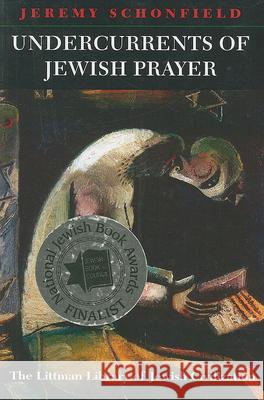Undercurrents of Jewish Prayer » książka
Undercurrents of Jewish Prayer
ISBN-13: 9781904113720 / Angielski / Miękka / 2007 / 414 str.
Traditional Jews encounter the prayer-book-the Siddur-more often in their daily lives than any other text, yet it is mysteriously absent from their otherwise nearly comprehensive curriculum of study. In addition, they tend to recite it mantrically, more for its sound than its meaning. The neglect of meaning is so complete that no edition of the prayer-book has yet appeared with a comprehensive range of commentaries. The present work, the first to examine this paradox, explains it as a reluctance to engage with the intellectual and emotional questions that lie just beneath the surface of the text. An analysis of the opening sequences of the daily ritual reveals that the prayer-book, far from representing one side of a deferential dialogue with an attentive deity, actually challenges God to allow access to the revelation on which human safety depends and to keep his side of the covenant. Confronting the chaotic unpredictability of the human condition, this undercurrent of protest allows Jews to question why God's urgently needed intervention seems absent. Anger at this apparent absence is qualified only by gratitude at being alive.
The core of this book consists of a novel examination of the opening sections of the traditional daily morning liturgy according to the Ashkenazi rite. The analysis is based on mostly untranslated medieval and later commentaries identifying the biblical and rabbinic echoes from which the liturgy is woven, and employs analytical methods of the kind traditionally applied to talmudic and midrashic texts. It shows how each citation and echo imports aspects of its original context into the new composition, forming a countertext to the words on the page. It examines each textual layer, as well as the surface meaning that is usually the only one to be noted, and relates these to the speaker's actual location-home and later the synagogue-as well as to the time of day when the prayers are recited, as the worshipper faces the dangers of the day ahead. The resulting chorus of ideas-linking everyday life to the sacred narrative from creation to exile-demonstrates the philosophical sophistication of rabbinic spirituality in offering poetic insight into an ultimately tragic vision of reality.











